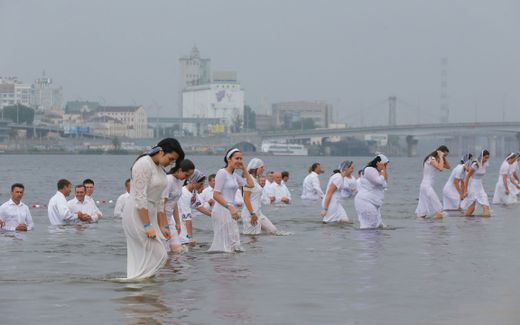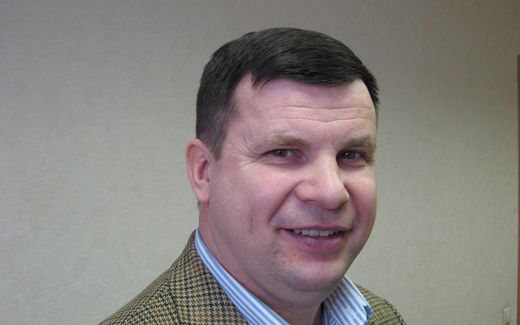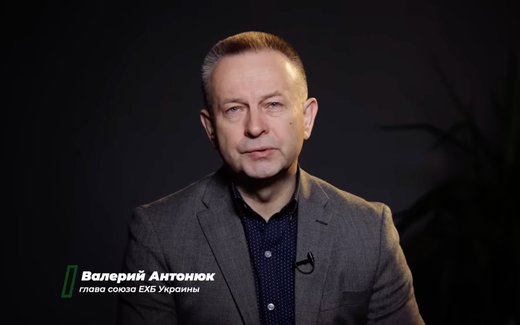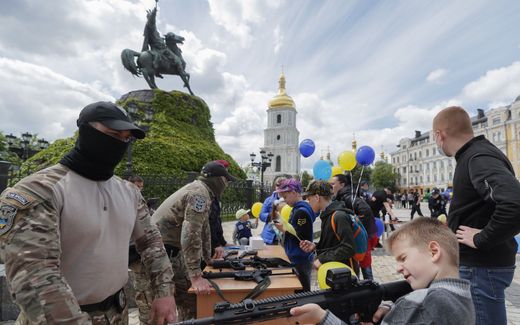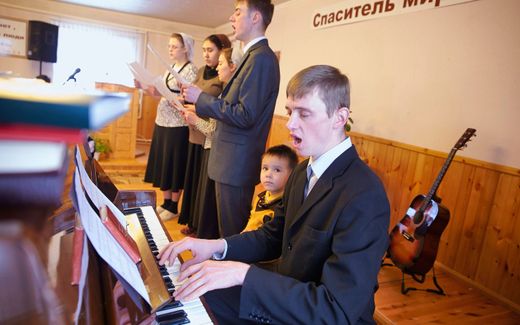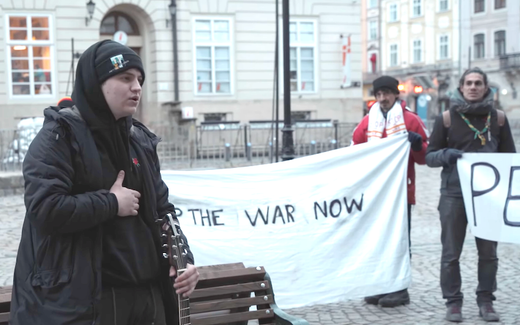Pacifism in the war (2/2): If there is no fight in heaven, then it should not be on earth either, says Evangelical leader in Russia
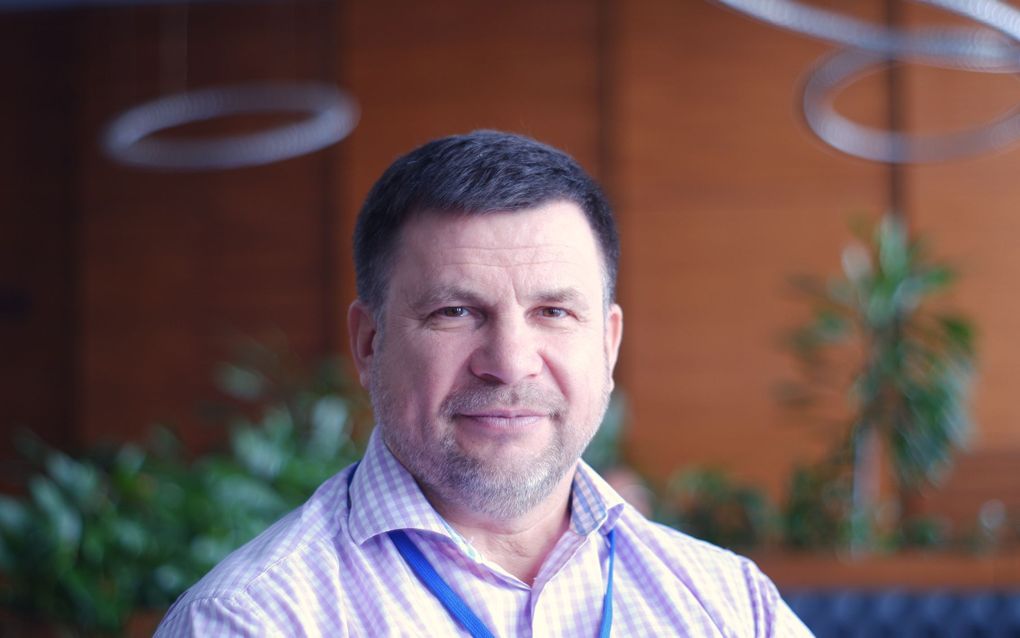
Russian Evangelical leader Vitaly Vlasenko thinks Christians should not be active in the army. Photo CNE.news, Evert van Vlastuin
Eastern Europe
For Evangelical Christians in Russia, a stone in the water could not have created more ripples than the news about the mobilisation. This could affect all homes and families. Nobody knows whether the Kremlin will respect the non-violent conviction of Protestants. “The mobilisation stands above the normal laws”, says Vitaly Vlasenko.
When the Secretary General of the Russian Evangelical Alliance (REA) comes in a church, visitors speak about just one thing: the mobilisation. “People are scared. I can imagine that. Our son is 21 and has just finished university. He may be called as well.”
The REA represents more or less all Protestants in his country: Pentecostals, charismatics and Baptists. Nobody knows how many people belong to these communities. Vlasenko only knows that the Baptists are 75,000. For the total of Protestants, he thinks about 0.5 per cent of the Russian population: 700,000 people.
Vlasenko is a Baptist pastor. Before being installed at the REA, he was responsible for foreign affairs for the Union of Evangelical Christian-Baptists. He is a well-known spiritual leader, and people ask him for advice. “Mothers could lose their sons; wives can lose their husbands. Men can just be stopped in their career. Somebody else will change their life. In Russia, most men are breadwinners. So, this announcement by the President brought the war home in a really personal way.”
Letter
If a son of the Baptist church gets a call to come to the army office, the church gives him a letter. “That document says that he is a member of the church and that we as Christians seek peace and reconciliation”, Vlasenko tells in Sarajevo, in the margin of the Hope for Europe Conference from the European Evangelical Alliance. “Every Sunday, we pray for peace and reconciliation. Why? Because it is God’s will to be done, in heaven and on earth. Do you think there will be war in heaven? If that is not God’s will, then it is not His will to have that on earth either.”
Until now, the letter has worked. “So far, the officers have let them go home. That is positive, but we don’t know how it goes further. Some boys may end up in jail for 5 to 15 years. But we are ready to suffer for our beliefs.”
Baptists have always been on the pacifist side, says Vlasenko. “The army would be OK if it was only for defence, as during the Second World War. But this war is not a just war; it is an invasion of another country. It is bad when neighbours with such relationally close links fight against each other. The church needs to be a peacemaker. There are always other ways to resolve a conflict.”
Obviously, not all Baptists refuse to take the army uniform. “Some of them still go and work in an army hospital or in the kitchen. That is difficult, because you still serve the army in a war. But of course, everybody can decide according to his own conscience.”
The Russian law provides for alternative conscription service for people with conscientious objections. “But alternative service takes three years instead of one in the army. Usually, you are sent to work in a hospital or to help the homeless. But it is unclear whether this law is applicable under the mobilisation. Our last mobilisation was in 1941.”
Afghanistan
In 1987, Vlasenko was called up by the Soviet army. He knew he would not take the oath to the nation. “I told them I was a Christian and ready to make a promise, but not the oath. They ignored me and put me on the list for Afghanistan. While packing my stuff, I got the message that I could remain in Russia. I worked in an air force factory, so I did not have to use a weapon. But some in my situation have been in jail for two years.”
For young people, the present mobilisation is difficult, Vlasenko says. “The government wants everybody to be patriotic. But as Christians, we have dual citizenship. Our first loyalty is to God’s kingdom, and our second to earth. We have to listen to God first.”
Are you a patriot?
“Yes. Not that I am always proud of my country. But I wish the best for my country; that it develops and is prosperous. And that is definitely not in war with our neighbouring country.”

You speak about war. Is that allowed?
“I am able to say: military operation. But many say war. I think that is allowed now. The army destroys infrastructure and kills citizens. So, it is a war. But to be honest, I feel very sorry to have to call this a war.”
How do you see this as a Christian?
“I feel so strongly that Jesus calls Christians for peace. And to be a good neighbour. That brings the best for both nations. I realise the spiritual responsibility I have for my country’s actions. I want to apologise on behalf of my nation.”
Related Articles


